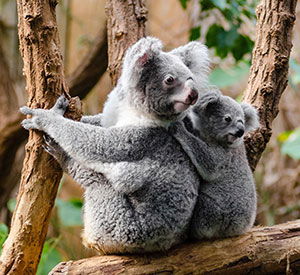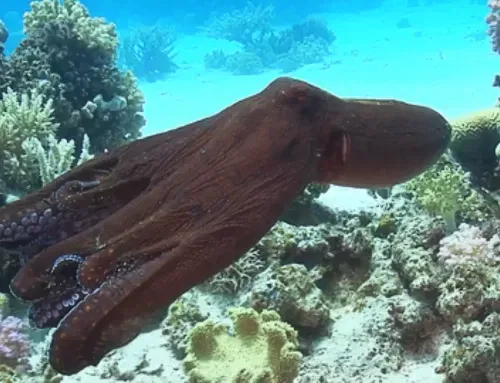We all love to gain something new – a promotion at work, a gift, a marriage, the birth of a child – all good things. By contrast, we dislike or mourn loss – a missing earring, a stolen credit card, the death of a friend or family member, an accidentally dropped or shattered precious vase – all bad things. In general, gain is positive, and loss is negative in our lives.
Yet, nature and science demonstrate that adapting to loss is a win.
Evolving Thoughts on Loss
Ever since Charles Darwin, evolution has been famously defined by the survival of the fittest. This again brings acquisition to mind – gaining favorable traits to outcompete peers or to occupy a new niche, a promotion of sorts. But don’t minimize the importance of loss for sculpting the tree of life.
In a recent New York Times article, Veronique Greenwood reported on studies showing that the loss of genes was important for the evolution of terrestrial mammals to live and thrive in the ocean. Cetaceans (whales, dolphins and porpoises) lack, or have inactivated, some 85 genes, some of which direct traits that are beneficial, even essential, to life on land, in order to evolve an ocean existence.
A sampling of these genes includes blood clotting and sleeping, among other physiological traits. Loss of the blood clotting gene guards against clots forming in the presence of nitrogen bubbles as a consequence of deep-sea diving. A surprising loss was one of several genes that made a protein that fixes mutated genes (called a DNA-repair enzyme). The lost DNA-repair gene is imperfect, the repairs are not reliable, and that would be dangerous for animals prone to mutation in an aquatic environment. Thus, lost genes may open opportunities for new avenues of existence.

Gene evolution seems to have left koalas better off after losing a portion of the middle section of a retrovirus. Image by skeeze from Pixabay
Gene loss can be beneficial in other ways as well. For example, koalas have been plagued by the bacterial venereal disease of chlamydia and elevated cancers (leukemia and lymphoma); both are connected to an ancient retroviral infection, resulting in incorporation of retroviral genes into the host DNA. These viral genes have been inherited within the koalas for thousands of years. What is interesting with respect to the present blog is that incidence of chlamydia and cancers decreased in koalas that have lost the middle section of its incorporated retrovirus, again benefit by loss.
Viral Gains Happened Before Social Media
Of course, viral infections also can promote evolution by gaining functions. Indeed, incorporation of viral genes into animal genomes infected eons ago comprise about 8 percent of human DNA. These viral infections affect both physiology and evolution. An important example of virally induced evolution is the placenta, which was derived from virus infection millions of years ago.
A Loss Redefines the Power Nap
Another extraordinary situation – a truly ingenious adaptation – involves loss of genes associated with sleep. Sea mammals cannot risk being asleep and inactive for extended periods of time. One problem is that they must surface frequently to breathe. Consequently, they have developed the ability to have half their brain sleep at a time, making them both asleep and awake simultaneously. As an aside, numerous birds, especially those that migrate long distances, can also sleep with half their brain at the time. Wow! Wouldn’t that be helpful for our overcommitted schedules!
“Science Advances One Funeral at a Time”
The famous physicist, Max Planck, said that “science advances one funeral at a time.” What? Funerals advance science?
Planck’s theory, put forth in 1948, was that a few powerful superstar scientists dominate the subfields, thereby creating barriers for new viewpoints by younger scientists. Once the superstars die the field becomes receptive to newcomers, novel points of view and paradigm shifts.
Greenwood has reported on studies examining this idea. The results have indicated that collaborators of the superstars become less productive when the superstar dies, resulting in a general slump in the field. However, after a transient dip, newcomers entered the field by an average of 8.6 percent annually to drive the field forward and science advances.
Are Your Losses in the Right Column?
Thus, while no one disputes the value of positive gain, gain can be achieved by loss in science. Could this true for all of us upon reflection?






Leave A Comment